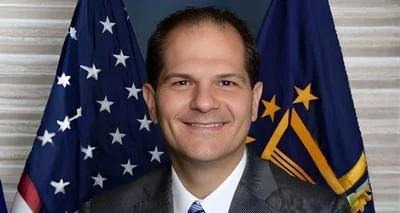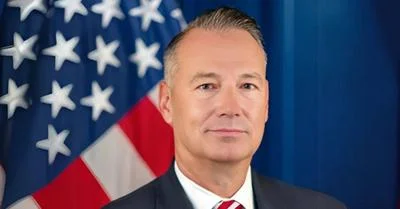Brandon Johnson Mayor | Chicago Contrarian
Brandon Johnson Mayor | Chicago Contrarian
Chicago is facing a significant financial challenge in its public transit system. In 2026, the Regional Transportation Authority (RTA) forecasts an operating deficit of $771 million for the combined Chicago Transit Authority (CTA), Metra, and Pace systems. The CTA alone accounts for approximately $605 million of this shortfall, a figure that exceeds the entire budgets of many mid-sized cities.
This crisis follows years of declining ridership since the pandemic and rising labor and pension costs that outpace fare revenue. Despite some companies now requiring employees to return to five-day in-person workweeks, public transit usage has not rebounded to pre-2020 levels.
Historically, Chicago’s transit was operated by private companies between 1888 and 1947. These firms were funded by investors seeking returns from daily fares. However, city-imposed fare caps and restrictive franchise rights led to financial instability. Companies could not raise fares or invest confidently due to time-limited and revocable franchises granted by the city council. When economic pressures mounted during the Great Depression, these businesses could neither refinance nor attract new investment, leaving municipal takeover as the only option.
The Metropolitan Transit Authority Act of 1945 established the CTA to consolidate failing private operators into a single municipal corporation by 1947. This move allowed Chicago to issue tax-exempt bonds and subsidize operations with sales-tax revenue instead of relying solely on fare income. While this solved immediate problems, it transferred ongoing deficits from riders to taxpayers.
This shift reflected a broader national trend toward “municipalization,” where cities took over formerly private utilities under public monopolies. As Ronald Reagan noted: “If it moves tax it. If it keeps moving, regulate it. If it stops moving, subsidize it.” Over time, political decisions replaced market discipline in running public transit.
Currently, reforming the CTA is difficult due to entrenched labor contracts protected by state law and constitutional safeguards for pensions in Illinois. The CTA’s farebox recovery ratio—once near 90 percent in the 1950s—is now below 40 percent.
In 2005, Mayor Richard M. Daley leased the Chicago Skyway toll bridge for 99 years in exchange for $1.83 billion while retaining city ownership but transferring operation risks and maintenance costs to a private consortium through a concession agreement—a structure that did not violate state constitutional protections on pensions or property.
A similar approach could be considered for CTA operations: leasing service delivery to a private operator while maintaining public ownership of infrastructure and existing pension obligations untouched but capped at current employees; future hires would have separate plans.
Such arrangements are common internationally—for example, London’s bus network uses competitive contracts with private operators under government-set fares and routes—while Chicago continues with its traditional model despite mounting deficits.
“Public transit” has become less a service than a social entitlement, and its shortfall is treated as a moral obligation rather than a managerial failure," according to commentary from local observers.
“The story of Chicago transit began with private companies crippled by fare caps and revocable franchises,” one analysis states.“It evolved into a public monopoly cushioned by perpetual subsidies... Both models suffered from the same flaw: insulation from the marketplace.”
The article concludes that “the choice facing Chicago is not between public and private virtue but between stagnation and adaptation,” suggesting contractual partnerships like those used for infrastructure elsewhere may offer solutions without violating legal constraints on pensions or ownership.






 Alerts Sign-up
Alerts Sign-up